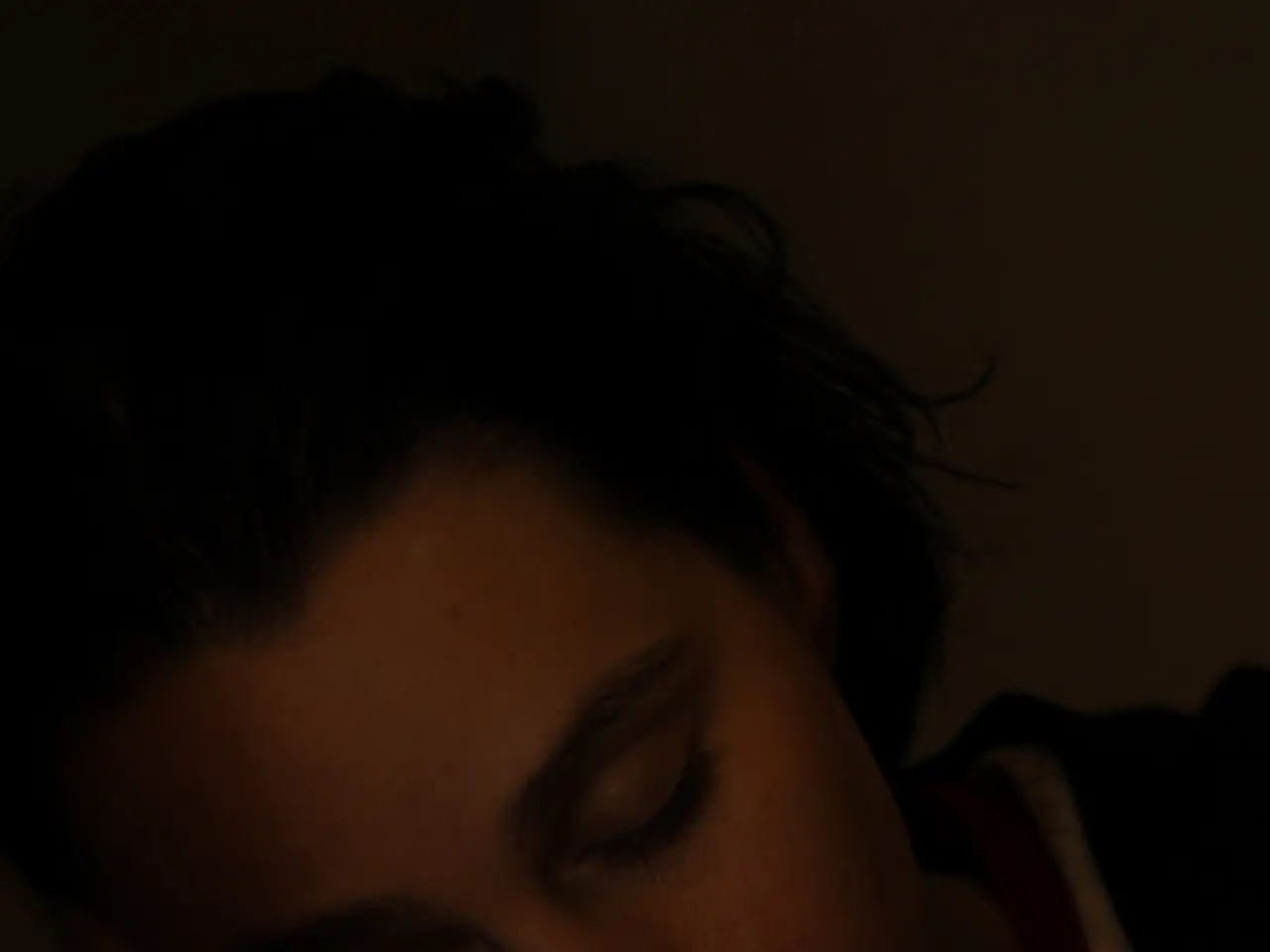Remarking on the Phase of Dementia Characterized by Prolonged Daytime Sleep
Sleep patterns in patients with Alzheimer's Disease (AD) and Frontotemporal Dementia (FTD) undergo significant changes, leading to disruptions in the regular sleep-wake cycle and excessive daytime sleepiness.
Sleep Patterns in Alzheimer's Disease
Individuals with AD often experience disrupted 24-hour sleep-wake cycles, resulting in excessive daytime naps and fragmented, reduced sleep at night. A significant reduction in slow-wave (deep) sleep and REM sleep, crucial for brain restoration, is also common. These sleep disturbances may contribute to disease progression by impairing the clearance of toxic substances in the brain, such as amyloid-beta. Excessive daytime sleepiness and other sleep disruptions generally become apparent in the early to moderate stages, worsening alongside cognitive decline.
Sleep Patterns in Frontotemporal Dementia
While detailed sleep architecture changes in FTD are less documented compared to AD, FTD commonly features fluctuating cognition, behavioral changes, and sometimes REM sleep behavior disorder. Excessive daytime sleepiness in FTD is often linked to behavioral symptoms and neurodegeneration affecting brain regions controlling sleep-wake cycles. Unlike AD, memory impairment is often preserved early in FTD, but personality and behavioral changes, which may disrupt normal sleep hygiene, occur early and exacerbate sleep problems.
Stages of Onset for Excessive Daytime Sleepiness
In Alzheimer's, excessive daytime sleepiness commonly starts appearing in mild to moderate dementia stages, aligning with increasingly disrupted night-time sleep and decline in deep and REM sleep. In Frontotemporal Dementia, excessive daytime sleepiness tends to appear later, often as behavioral symptoms worsen, but can be present once cognitive and emotional regulation impairments become significant.
Summary Table
| Aspect | Alzheimer's Disease | Frontotemporal Dementia | |----------------------------|--------------------------------------------------|------------------------------------------------| | Sleep disruptions | Fragmented night sleep, reduced slow-wave & REM | Fluctuating cognition, REM sleep behavior disorder | | Excessive daytime sleepiness| Starts mild–moderate stages; worsens with progression | Emerges mid to later stages, linked to behavioral decline | | Key sleep symptoms | Day/night sleep cycle reversal, loss of deep sleep| Behavioral symptoms disrupt normal sleep; REM disorder possible | | Memory impact | Early and progressive | Often preserved early; behavioral symptoms dominate |
This analysis is based on recent authoritative sleep and dementia research sources and a detailed dementia symptom overview. The exact onset and severity can vary individually, but excessive daytime sleepiness classically follows disrupted nighttime sleep patterns as dementia advances.
Non-pharmacological interventions, such as bright light therapy, can boost the energy level of dementia patients. Medical professionals advise caregivers to help the patient live an active and engaging life, including short morning walks, socializing, and watching comedy movies. Fragmented sleep in dementia patients can affect caregivers or family members of the patient. Excessive daytime sleepiness can be treated medically, and a study by Johns Hopkins University, Baltimore suggests that non-pharmacological interventions have shown improvements in sleep symptoms for dementia patients.
- Science has shown that sleep patterns in Alzheimer's Disease and Frontotemporal Dementia undergo significant changes, leading to disruptions in the regular sleep-wake cycle and excessive daytime sleepiness.
- Studies suggest that excessive daytime sleepiness in Alzheimer's Disease typically starts appearing in mild to moderate dementia stages, whereas in Frontotemporal Dementia it tends to emerge later, often as behavioral symptoms worsen.
- The health-and-wellness implications of these sleep disruptions in dementia patients can extend beyond the patients themselves, impacting their mental-health, neurological-disorders, and day-to-day lifestyle.
- In the pursuit of improved health-and-wellness for dementia patients, science continues to explore effective non-pharmacological interventions, such as bright light therapy and engaging daily activities, to address issues like excessive daytime sleepiness.




